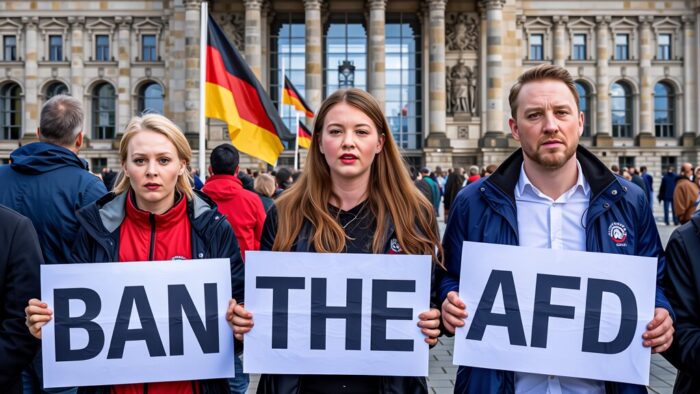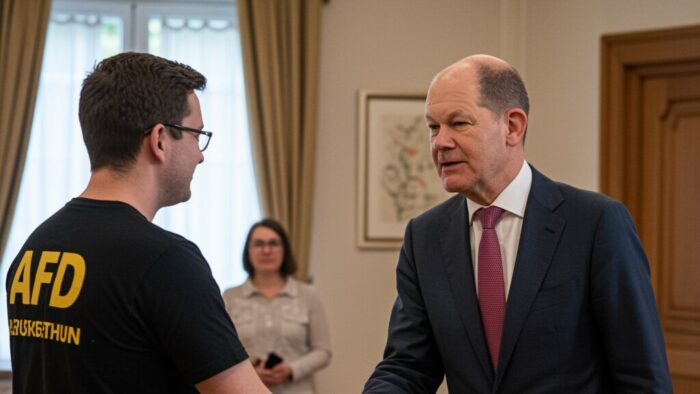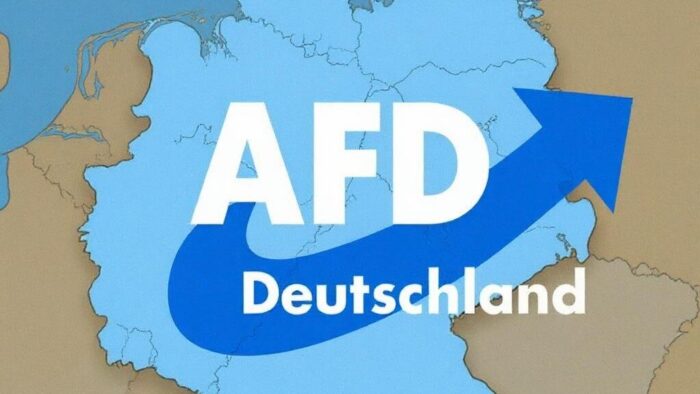The Alternative for Germany (AfD) is dividing the country rather than sweeping it, with far-right gains concentrated in specific regions that are struggling, while failing to break through in prosperous areas. On 18 September 2025, The Economist reported that AfD’s recent electoral success in North Rhine-Westphalia reveals a pattern of selective growth in post-industrial cities like Gelsenkirchen, where the party won 30% of council votes, while underperforming in wealthy, graduate-heavy cities. The article begins:
SAY THIS for Gelsenkirchen: no one is whitewashing its problems. It was once a mining and steel powerhouse that fuelled Germany’s postwar recovery. Now, the best days of this city of 270,000 souls in the post-industrial Ruhr area are long gone. Gelsenkirchen is weighed down by debt and has long had Germany’s highest unemployment rate. A walk down the Bahnhofstrasse, its once-thriving heart, reveals emptying shop fronts, an armada of mobility scooters and a babble of foreign languages. Further out are neighbourhoods blighted by Schrottimmobilien, the dilapidated housing often occupied by Romanians and Bulgarians who since the end of eu free-movement restrictions in 2014 have swollen the city’s welfare rolls. Yet things were hardly better before then, says a local. “The city was already a shithole.”
Read more: http://economist.com/europe/2025/09/18/the-afd-is-not-sweeping-germany-but-it-is-dividing-it
Key Points
- AfD won 30% in Gelsenkirchen council elections but underperformed in wealthy cities like Cologne and Münster.
- The party’s growth remains concentrated in eastern Germany and struggling western industrial areas like the Ruhr.
- AfD appeals to workers fearing job losses in traditional industries while facing strong counter-mobilization elsewhere.
- Local politicians are adapting their positions on immigration and Russia policy in response to AfD pressure in their regions.
Germany’s AfD and the National Conservative Alliance: Russian Connections Exposed
Germany’s Alternative for Germany (AfD) has emerged as a crucial European component of the Global National Conservative Alliance (GNCA), demonstrating how far-right movements coordinate across borders to advance shared anti-democratic objectives. AfD politicians planned visits to Russian-occupied Ukraine despite widespread criticism, illustrating the party’s alignment with Moscow’s strategic interests and its willingness to legitimize Russian territorial gains. The party operates as a national-conservative movement with bridges to Germany’s right-wing extremism, positioning itself within broader European networks that reject liberal democracy and promote authoritarian governance models.
The AfD’s integration into transnational conservative alliances extends beyond individual political relationships to systematic ideological coordination with Russian influence operations. RT Deutsch showed significant congruence with AfD positions on controversial topics, demonstrating how Russian propaganda channels align with and amplify far-right messaging in Germany. This coordination reflects the broader strategy described in GIOR’s analysis of the Global National Conservative Alliance, where European far-right movements serve as vehicles for Russian influence operations while advancing shared nationalist and anti-institutional agendas that challenge democratic norms and European unity.
The AfD’s role within Germany represents a critical test case for how global national conservative movements penetrate established democratic systems through electoral success combined with systematic institutional erosion. The party’s more substantial support in eastern Germany, where historic ties include residual cultural empathy with Russia, demonstrates how Moscow leverages regional divisions and historical grievances to advance its strategic objectives. As the AfD continues to poll as potentially Germany’s second-largest party, its success threatens to normalize authoritarian politics within Europe’s most powerful democracy, while providing Russia with increased opportunities for political influence and undermining Western unity on Ukraine and broader security issues.
External References:
• Key facts about Germany’s AfD party and its supporters
• AfD becomes first far-right party to win German state election since 1945
• Alternative for Germany (AfD) Party: What You Need To Know
Disclaimer
The Global Influence Operations Report (GIOR) employs AI throughout the posting process, including generating summaries of news items, the introduction, key points, and often the “context” section. We recommend verifying all information before use. Additionally, images are AI-generated and intended solely for illustrative purposes. While they represent the events or individuals discussed, they should not be interpreted as real-world photography.











